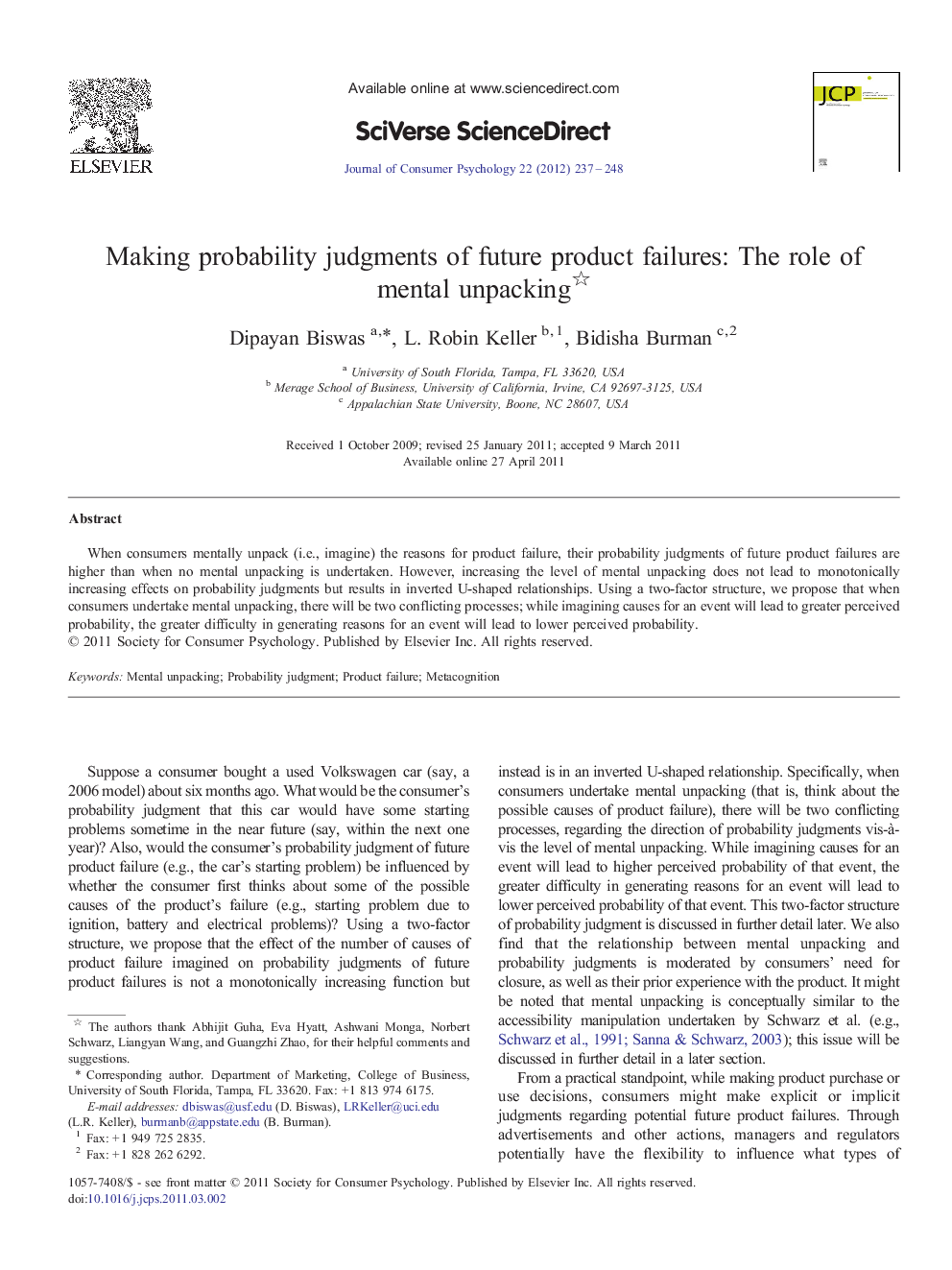| Article ID | Journal | Published Year | Pages | File Type |
|---|---|---|---|---|
| 882219 | Journal of Consumer Psychology | 2012 | 12 Pages |
Abstract
When consumers mentally unpack (i.e., imagine) the reasons for product failure, their probability judgments of future product failures are higher than when no mental unpacking is undertaken. However, increasing the level of mental unpacking does not lead to monotonically increasing effects on probability judgments but results in inverted U-shaped relationships. Using a two-factor structure, we propose that when consumers undertake mental unpacking, there will be two conflicting processes; while imagining causes for an event will lead to greater perceived probability, the greater difficulty in generating reasons for an event will lead to lower perceived probability.
Keywords
Related Topics
Social Sciences and Humanities
Business, Management and Accounting
Marketing
Authors
Dipayan Biswas, L. Robin Keller, Bidisha Burman,
